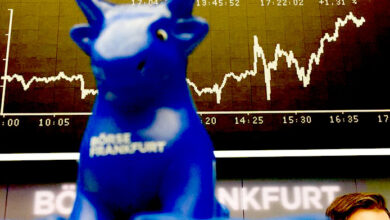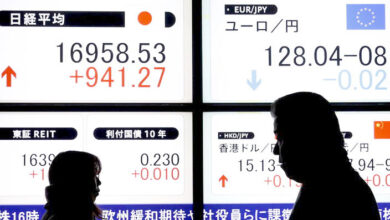Japan’s Nikkei 225 Index Hits a Record High Close of 40,913.65

Introduction
Hey! Did you catch the latest news from the world of finance? It seems that Japan’s Nikkei 225 index just smashed past its previous record to record a new record high of 40,913.65. This is quite an accomplishment for anyone who keeps an eye on the global market. But what exactly does it mean? What is the reason for this current situation? What does it mean in the near future? Let’s explore the meaning of these staggering numbers and break it into pieces.
A Historical Context
The Nikkei 225, Japan’s most prestigious index of stocks, has a long and rich history. It was established in 1950 and measures how 225 big publicly-owned, publicly-owned firms are listed on the Tokyo Stock Exchange. Through the years, it has been an indicator of Japan’s economic well-being and investor sentiment.
In the latter half of the 1980s, as Japan experienced its economy’s bubble The Nikkei 225 experienced incredible gains. The prices of assets were skyrocketing, and the index reached a record-setting highest of 38,915.87 at the close of 1989. However, the boom was only for a short time because the bubble burst at the beginning of 1990 and led to a massive market crash. Since then, the index has witnessed several ups and downs, showing the complex nature of both the global and Japanese economies.
The Current Record-Breaking Surge
Now, fast forward to Thursday, and the Nikkei 250 closed at the record highest of 40,913.65, which was higher than its previous record closing that was set back in March. What’s behind this increase? Well, it’s a mixture of a variety of factors.
Heavy Buying in Automaker and Technology Shares
One of the major reasons for the recent Nikkei gains is the massive buying of shares of technology and automakers. Japan hosts many of the top tech and automotive firms, including Toyota, Honda, Sony, and Panasonic. These sectors have enjoyed robust growth fueled by innovations, worldwide demand, and positive earnings reports.
The Influence of a Weak Yen
Another important aspect is the Japanese currency’s decline, which is currently at 34-year lows versus the US dollar. A weak yen can be positive for exporters because it helps to make Japanese products less expensive and more attractive to foreign buyers. If these profits from overseas are repatriated, they’re worth more in terms of yen, which boosts the earnings of Japanese firms. This has led to Japanese stocks more appealing to both foreign and domestic investors.
Impact of Global Markets
The rise of the Nikkei index hasn’t come in the absence of other indicators. It’s been bolstered by the strong performance of international markets, especially on Wall Street. The S&P 500 and the tech-rich Nasdaq have also set new records, indicating the general optimism for investors. The global market rally has given an additional boost to Japanese stocks.
Changes in Investment Regulations
Japan has also witnessed changes to its investment environment, which have led to more people taking part in the market for stocks. The most significant change is the growth of NISA (Nippon Individual Savings Accounts) that became tax-free investments in the year 2000. The limit on the amount that can be stored in these accounts and the time for which they can be kept are now higher, making them more appealing to investors. This new regulation has brought more money from the domestic market to the market for equity.
The Appeal of Japanese Stocks
So, why do investors flock to Japanese stocks despite the economic slowdown? There are a variety of reasons. A weaker yen changes to the regulatory system, and impressive corporate performance all contribute. In addition Japan’s reforms in corporate governance recently have helped make their businesses more attractive. The reforms have enhanced transparency, boosted returns to shareholders, and made Japanese companies more efficient and competitive.
Evaluation of Global Indices
When we evaluate the Nikkei performance with other global indexes that are comparable, its 22.4 percentage increase this year is notable. Even though it is true that the S&P 500 and Nasdaq have also experienced impressive gains, the Nikkei’s performance is especially significant due to the unique challenges facing Japan’s economy, like an aging population and rising deflationary pressures; this shows the resilience as well as the potential of Japanese businesses in the global marketplace.
Economic Indicators and Future Predictions
In the future, what should we expect from this year’s Nikkei 225? Forecasting the movements of stock markets is always a challenge, but certain indicators may provide some clues. The continuing weakening of the yen should it continue, will keep increasing exporter profits. In addition, any future positive developments in the global market could also provide further tailwinds.
However, investors must be aware of the risks. The global economic uncertainty, the changes in monetary policy, and geopolitical tensions may affect the mood of markets. Being aware and monitoring these indicators will be vital to anyone who is investing in or thinking of investing in Japanese stocks.
How to Invest in the Nikkei 225
If you’re thinking of investing in the Nikkei 225 index, there are several ways to invest. You can purchase shares of the companies that comprise this index or put your money into exchange-traded funds (ETFs) that follow the Nikkei 225. ETFs provide a more diverse method of investing, spreading your money across the 225 companies that comprise the index.
Tips for Investing
Before you dive into the water, here are a few suggestions to remember:
- Do Your Research Know the companies you’re investing your money in as well as their results.
- Diversify: Do not keep all your eggs in one basket. Divide your investments in order to limit the risk.
- Stay updated Keep an eye on the latest market developments, economic indicators, as well as news that could affect the market for stocks.
- Get professional advice If you’re new to investing, you should consider speaking with a financial adviser to guide your investment choices.
Conclusion
The Nikkei record-breaking 225’s high of 40,913.65 is a testimony to the endurance and strength of Japanese firms. Based on strong performance in the technology and automotive sectors and a weakened yen as well as favorable regulatory developments as well as global market trends The rise of the Nikkei is an important milestone. For investors Japan’s stock market provides potential for growth, but it’s important to be aware and take into account both the benefits and the risks.





